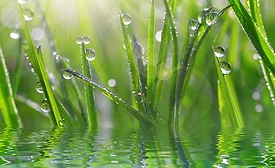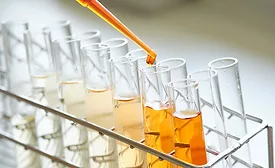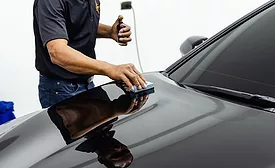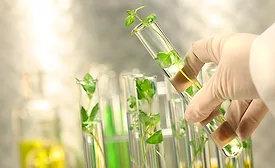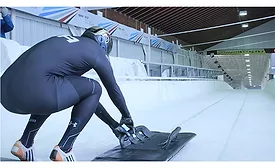Home » Publications » Adhesives & Sealants Industry
Adhesives & Sealants Industry
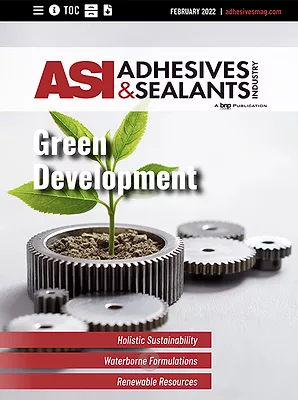
February 2022
Cover Story
Back to TopHow can we make adhesives and bonding processes more sustainable?
Read More
Features
Back to TopCore-Shell Masterbatches in Acrylate Monomer
New liquid tougheners offer multiple benefits for structural adhesives and thermoset systems.
February 21, 2022
Striving for Sustainability
How Are Adhesive Innovations Enabling the Circular Packaging Economy?
The packaging industry can address the growing market demand for sustainable packaging while also enabling operating and performance improvements that have benefits independent from sustainability.
February 16, 2022
Electric Vehicle Market Advances Generate Adhesive Technology Innovations
As the electric vehicle market evolves and develops, adhesive manufacturers create new technologies to meet these needs.
February 11, 2022
Performance Elastomers from Renewable Resources
Elastomers produced with a new renewable monomer are helping create new market value while offering sustainability benefits.
February 14, 2022
Market Trends
Strong Growth Projected for Automotive Adhesive Tapes
Several key trends will help drive the 6.1% CAGR expected for automotive adhesive tape revenues through 2028.
February 9, 2022
Improved Rheological Profile and Stability of 2K Waterborne Polychloroprene Dispersion Adhesives
Microfibrillated cellulose (MFC) offers multiple benefits in waterborne polychloroprene adhesive formulations.
February 7, 2022
Striving for Sustainability
Recycling Silicone Sealant Cartridges
Henkel has launched a global innovation call for separating plastic from silicone waste.
February 4, 2022
Case Study
Tale of the Tape: Adhesive Tape and the USA Bobsled/Skeleton Team
The USA Bobsled/Skeleton team and tesa are teaming up to win gold at the Winter Olympics.
January 20, 2022
Columns
Back to TopAsk Dr. Dave
Ask Dr. Dave’s Greatest Hits
Dave Dunn has retired as a columnist following 20 years of monthly contributions.
February 21, 2022
Specialty Chemicals Insights
Connections, Solutions Take Center Stage at Specialty & Custom Chemicals Show
The Specialty & Custom Chemicals Show will feature more than 165 exhibitors, 39 Exhibitor Showcases, and a series of educational sessions focusing on pressing issues that manufacturers are facing both inside and outside their fence lines.
February 15, 2022
Common Bond
Bringing the Adhesive and Sealant Industry Back Together in 2022
The Adhesive and Sealant Council is bringing the industry together in Chicago for a grand event—the 2022 World Adhesive and Sealant Conference.
February 2, 2022
Keep the info flowing with our newsletters!
Get the latest industry updates tailored your way.
JOIN TODAY!Copyright ©2025. All Rights Reserved BNP Media.
Design, CMS, Hosting & Web Development :: ePublishing
